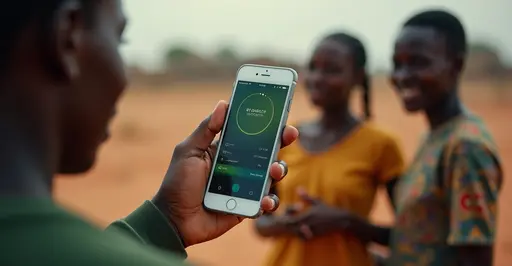
African Nations Accelerate CBDC Testing
Central Bank Digital Currency (CBDC) pilots are rapidly expanding across Africa as nations seek to boost financial inclusion and modernize payment systems. With over 65% of sub-Saharan Africans lacking access to traditional banking, countries including Nigeria, Ghana, South Africa, and Kenya are testing state-backed digital currencies to bring unbanked populations into the formal economy.
Current CBDC Landscape in Africa
Nigeria's eNaira leads the continent as Africa's first CBDC, launched in 2021. By March 2025, transaction volumes increased by 78% year-over-year. Ghana's e-Cedi pilot now reaches over 500,000 users through mobile wallets, while South Africa's Project Khokha is testing wholesale CBDC settlements between banks.
New entrants include Tanzania's digital shilling pilot and the East African Community's cross-border payment initiative. The Bank of International Settlements reports 14 African nations are now in advanced CBDC development stages, with 8 running live pilots.
Financial Inclusion Focus
CBDCs specifically target barriers preventing financial access:
- Reduced transaction costs (mobile CBDC transfers cost 80% less than traditional methods)
- No minimum balance requirements
- Offline functionality for areas with poor connectivity
- Simplified KYC processes using digital IDs
In Nigeria's rural northeast, CBDC adoption enabled 300,000 farmers to access microloans and crop insurance for the first time. Kenya's proposed digital shilling integrates with M-Pesa wallets used by 80% of adults.
Technology and Infrastructure Challenges
Significant hurdles remain in CBDC implementation:
- Power reliability issues affect 40% of potential users
- Cybersecurity vulnerabilities in legacy banking systems
- Interoperability between different CBDC platforms
- Digital literacy gaps among elderly populations
The African Development Bank is addressing these through its $500 million Digital Infrastructure Fund, supporting secure data centers and fiber optic networks.
Global Context and Future Outlook
Africa's CBDC surge mirrors global trends. The Atlantic Council reports 134 countries are exploring digital currencies, with 44 in active pilots. India's e-rupee circulation grew 334% to $122 million by March 2025, while China's digital yuan reached $986 billion in transactions.
Upcoming Financial Inclusion Week 2025 (October 6-9) will feature CBDC resilience strategies, with regional partners testing disaster-resistant payment systems. As IMF Managing Director Kristalina Georgieva noted: "Well-designed CBDCs could become financial inclusion game-changers, particularly in emerging economies."

 Nederlands
Nederlands
 English
English
 French
French
 Deutsch
Deutsch
 Espaniol
Espaniol
 Portugese
Portugese



